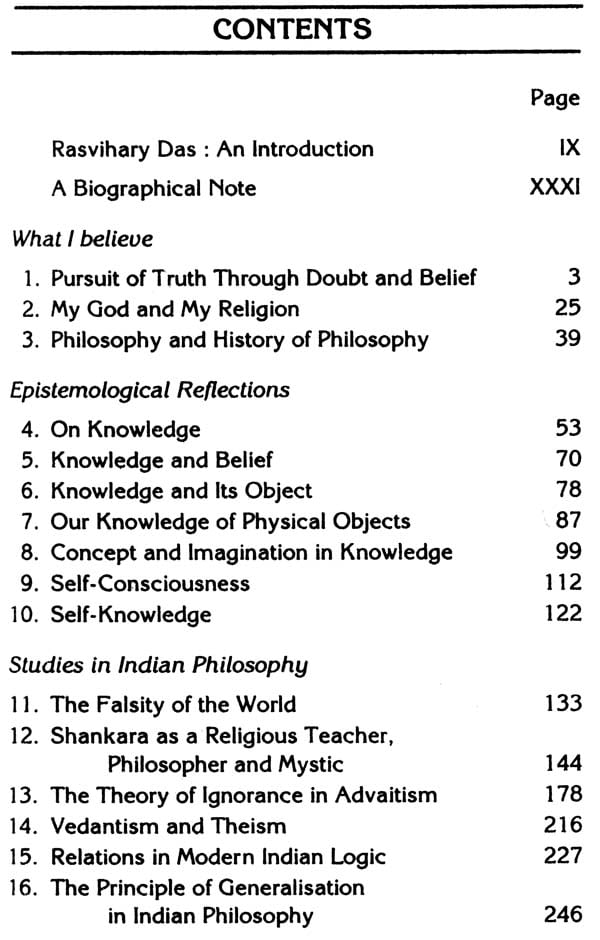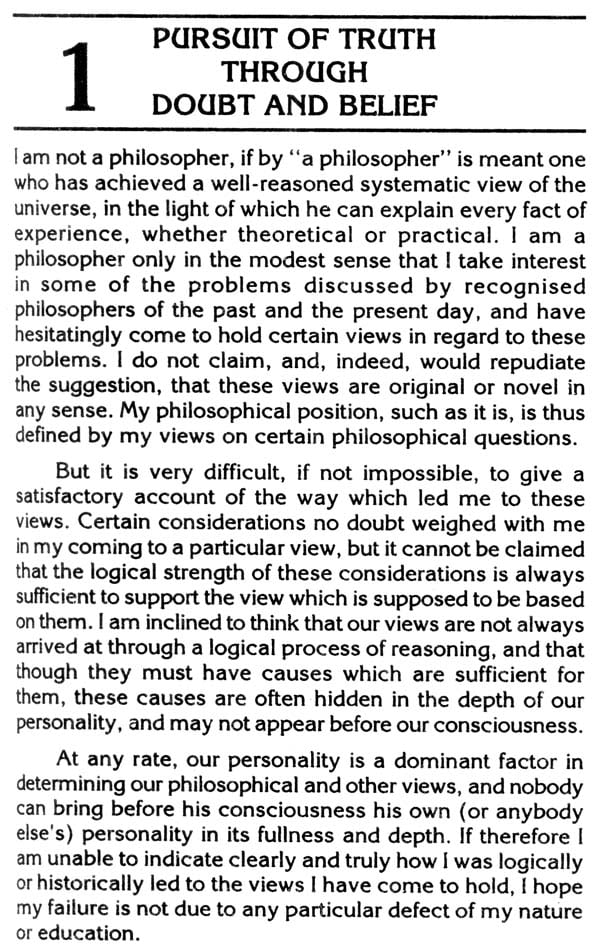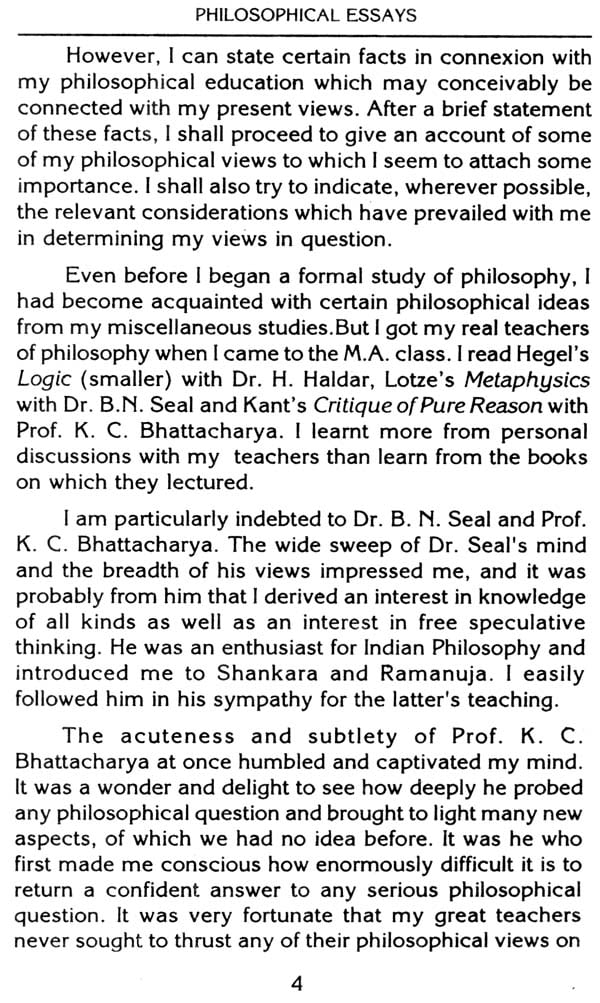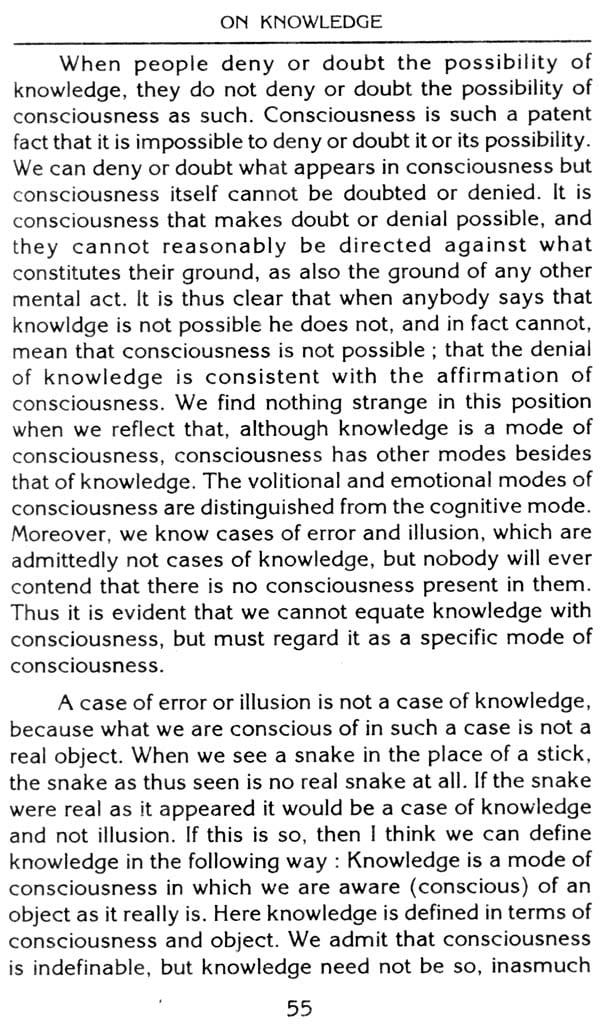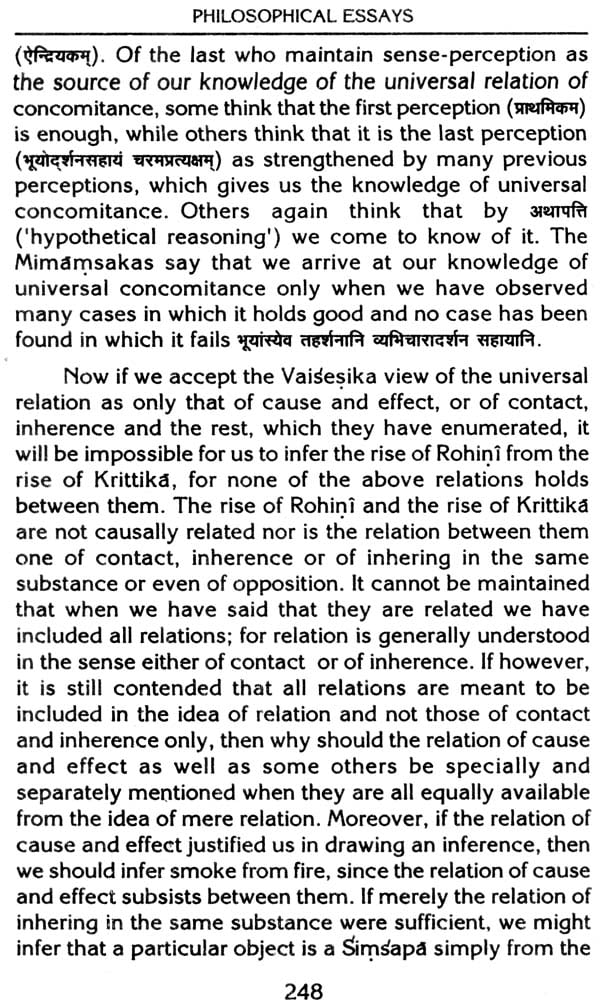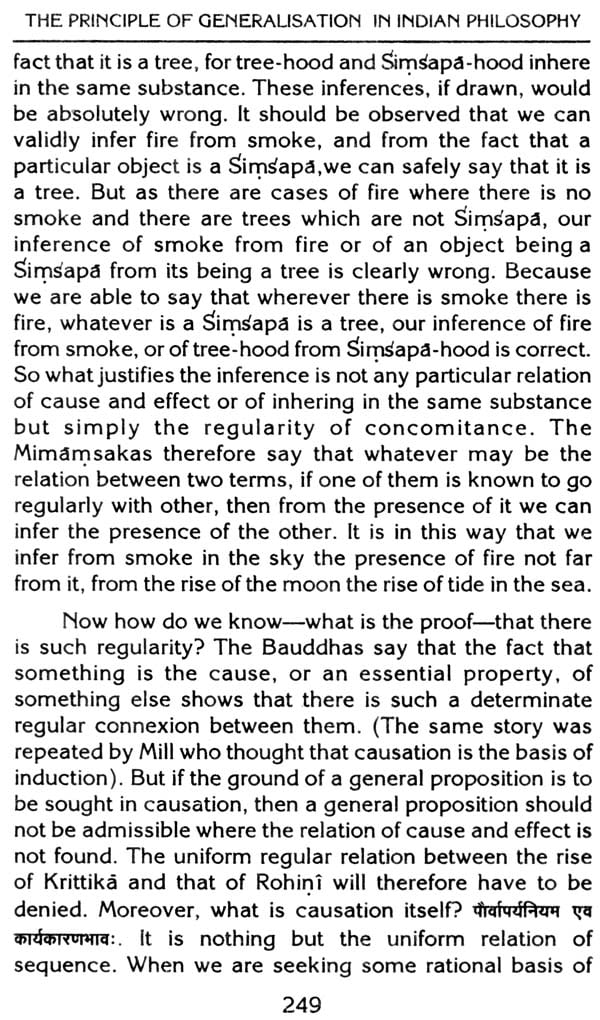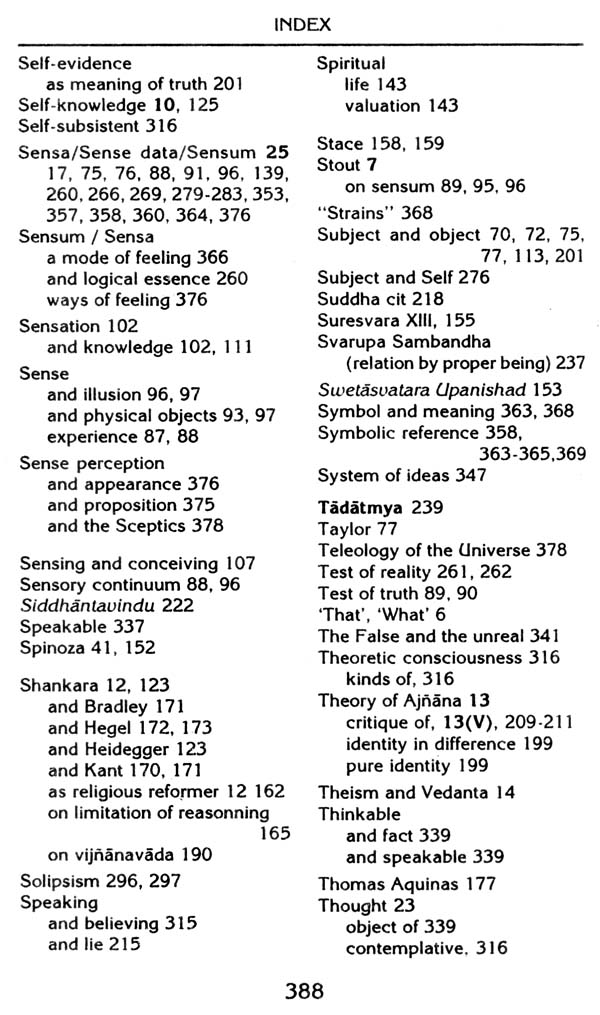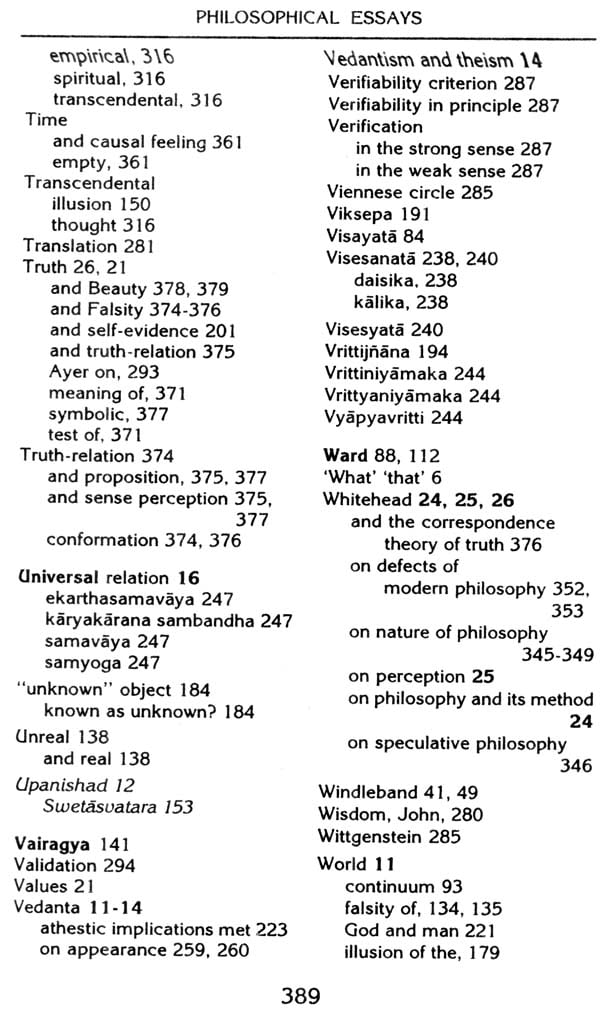
Philosophical Essays (An Old and Rare Book)
Book Specification
| Item Code: | NAZ149 |
| Author: | Rasvihary Das |
| Publisher: | University of Calcutta |
| Language: | English |
| Pages: | 422 |
| Cover: | HARDCOVER |
| Other Details | 9.00 X 6.00 inch |
| Weight | 540 gm |
Book Description
What I believe, Epistemological Reflections, Studies in Indian Philosophy, Fact and Fiction, Other Men's Thoughts.
Prof. Das, a polyglot, an intellectual reformer, and a down-to-earth philosopher, has been widely acclaimed for his commitment to the rigors of logic, his atheistic and skeptical views, his courage of conviction and open- mindedness, his philosophical insight and his strong opposition to all forms intolerant dogmatism, as also for his fine literary style.
Here is a specimen of this atheistic philosopher's thoughts:
To find God, I need not retire into mountain caves or climb up to hill-tops, or travel far too well-known holy places or even visit temples, churches or mosques nearby. In every act of genuine selfless love, my God seems to reveal himself clearly; in every shimmer of truth, recognized as such, through the foggy speculations of philosophers, we seem to catch a glimpse of God's glorious being; in the joyful mirth of innocent happy children as well as in the peace and calm of a meditative saint, the presence of God seems to be writ large for any discerning eye. My God thus is not a loving and knowing God, far less all-loving, and all-knowing. He is love or knowledge itself. In the same way, he is not joyful but joy itself.
[Rasvihary Das deserves to be referred to simply as Rasvihary, for, in his words, "in India we traditionally refer to our great men by their proper names, not by their surnames as is done in modern Europe". But chained as we are to the shackles of "a legacy of Western influence in our culture" we shall refer to him not as Rasvihary but by his surname (see footnote to Essay 22.)]
'Clarity is not Enough' - so goes the title of a famous book. I, for one, would prize Das's writings for their sparkling clarity, if not for anything else. "There are only a few writers who can give lucid expression to their difficult thoughts" says Das in Essay 23, and I have no doubt that Das is one of those few writers, while, incidentally, K.C.Bhattacharya and Whitehead are not. I refer to the latter because Das tried his best to throw light on these two great thinkers; but even his uncommon gift of making difficult and abstruse thoughts comprehensible even to the laity was not exactly upto the task of illuminating the blind-spots in them - the heart of darkness. [The essays on K.C.Bhattacharya and Whitehead - Essays 22-26 - seem to lack the crystalline quality that pervades other essays.]
Lest you accuse me of overstatement about Des's brilliant gift of verbal exposition, I call upon the perceptive and serious reader, not initiated into the rudiments of Indian philosophy, to go through the essay entitled 'Relations in Modem Indian Logic' [Essay 15] where we find discussed some of the most sophisticated and abstruse (even esoteric, one could say) concepts alien to Western thought and far away from ordinary or scientific usage : relations like samavaya, kalikasambandha, svarupa sambandha, paryapati, avaccehedekata, and tadatmya. I am sure, one will testify that at no stage did one falter, encounter any difficulty or fail to grasp what was attempted to explain.
Consider. for instance, the last of the above relations tadatmya, and see how simply but convincingly he defends 'A is A’: "We think that 'A is not A' cannot be true. But it can be false only if it can be validly contradicted by another proposition which can only be 'A is A' ". The illumining explanation of such alien ideas-alien to Western conceptual scheme arid intellectual climate, expressed in an alien language seems to have been possible as if by a magic: the magic wand in Des's hands being just a self- acquired ability. to weave simple English words of common usage into a network eminently suited to capture abstruse ideas. The result of Des's intellectual labor involved in explaining highly technical concepts and jargons in ordinary language idioms certainly adds an extra dimension to our thoughts mostly molded in the Western tradition; and we should all be grateful to him.
Book's Contents and Sample Pages
